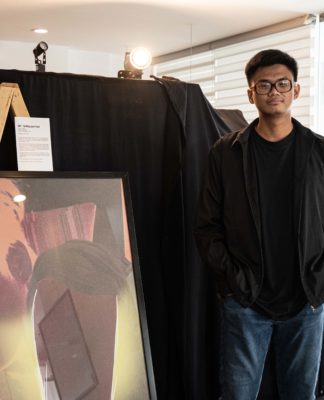YOU’D be surprised by the number of people I know, mostly women, who want to take up or are actually taking up second courses or master’s degrees in preschool education. I comment that the phenomenon is for these people to bridge a psychological gap somewhere, but then again, many of these women are in relationships, and are able to have kids if they so wanted it.
My “chauvinist” tendencies aside (for the record, I haven’t even started yet), this column is not about these women. It’s not even about preschoolers. It’s about their older versions, our gradeschoolers, and the kind of education they receive.
In the last Trends in International Mathematics and Science Study (TIMMS, a project of the International Association for the Evaluation of Educational Achievement headquartered in Amsterdam, directed by the TIMSS International Study Center at Boston College) on fourth and eighth graders (high school sophies here) in 2003, among approximately 50 countries, the Philippines ranked in this wise: in Math and Science, our fourth graders were third from last, ahead only of Morocco and Tunisia, while the eighth graders were fifth from last in Math, ahead of Botswana, Saudi Arabia, Ghana, and South Africa, and fourth from last in Science, before Botswana, Ghana, and South Africa.
In contrast, our little neighbor Singapore has been consistently topping the quadriennial study, followed closely by Korea, Japan, and Taiwan. The U.S. has been consistently in the middle, but above average.
Comparisons are always odious, I know. The individual performance of the Philippines in the TIMMS has improved some, at parts as high as 37 points. But we are talking about Math and Science here, two of the more universal disciplines, and the Philippines’ performance has a lot to say about where we stand and are going as a nation.
Since my folks passed away, I have had no ears in the Department of Education and for basic education trends, at least in our province. But one does not need to peek in to know for a fact that basic education in this country is not up to universal standards. I’d like to believe that the pupils are not the problem; in our small, quiet town up north I see brilliant gradeschoolers here and there every now and then.
In the yet-to-be passed national budget for this year, the biggest single allocation to a major department goes to the Department of Education—a whopping P119.1 billion. But in a country where official expenditures often cost more than they are actually worth in order to accommodate the pockets of people that enter into the contracts, one wonders if all that money is actually put into good use.
But activists, please, hold your tongues and bolos. Society is also to blame, and not just the system. Ask any mother (there should be samplings of them) in a place like Libis or Greenbelt 3 what they think of basic education. You’ll get the standard answer that Government should do something about it. What are they doing about it, or at least, about their kids?
These days, parents send their children to school, pay for tuition, and that’s about it. School has become moot and academic. It has become a prerequisite for going abroad, or worse, a pastime until one inherits a business, or makes it big in showbiz. Thus, even in this venerable institution, where forgiveness unduly extends outside the spiritual and moral realm, you have graduating college students who cannot make subjects and verbs agree, who do not know what a sunspot is. Students will learn in the real world anyway. If this attitude prevails, goodbye progress, hello stagnation and eventual deterioration.
***
One salient point of Philippine Daily Inquirer founder Eugenia Duran-Apostol in the recent Jose Villa Panganiban Professorial Chair Lecture sponsored by this publication is that, sure, the economy needs tweaking, the halls of politics need acid scrubbing. But fix the educational system and by it instill a better attitude in the people towards education, and the work will be significantly reduced. Politicians should stop grandstanding and work on the basics. Society, meanwhile, for all its wit and profound words (have you browsed through blogs lately?) should actively cooperate and not sit back complaining like brats.
















